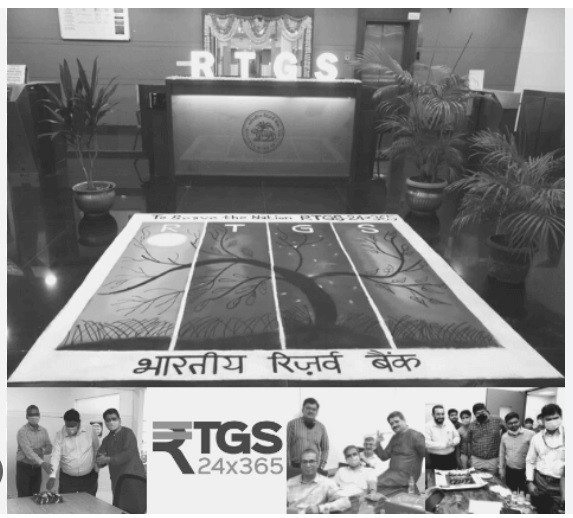The proposed cloud platform is expected to be at par in technology with leading public cloud service providers

FinTech BizNews Service
Mumbai, May 31, 2024: RBI released its ANNUAL REPORT 2023-24 on 30 May, 2024. The report contains Part I: The Economy: Review and Prospects and Part II: The Working and Operations of The Reserve Bank of India.
Cloud Facility for India’s Financial Sector
Indian Financial Technology and Allied Services (IFTAS), a wholly owned subsidiary of the Reserve Bank, has more than eight years of experience in running its own cloud platform and providing various cloud services. This platform was put in place for hosting the projects of IFTAS, the Reserve Bank, and its subsidiaries for SFMS member interface. As Indian banks and financial entities deal with ever increasing volume of data and look at options of various public and private cloud facilities, it becomes imperative for them to carry out a comprehensive business technology risk assessment for the cloud service providers (CSPs) before availing their services. Moreover, issues such as enforceability of agreements and adherence to the global standards, including aspects of storage, integrity, protection, and confidentiality of data have also become relevant. In such a scenario, the Indian Banking Community Cloud (IBCC), as a one stop solution in terms of expertise and counsel of an experienced partner to provide support at every step of the process, will be beneficial to banks/ financial institutions (FIs), especially the smaller ones, according to RBI’s ANNUAL REPORT 2023-24, released on 30 May, 2024.
Such a cloud will also allay any concerns in respect of jurisdiction and address issues of sovereignty, integrity, protection, and confidentiality of data. Accordingly, the Reserve Bank in its Statement on Developmental and Regulatory Policies (December 8, 2023) announced the setting up of a cloud facility for the financial sector, initially to be operated by IFTAS and later, to be transferred to a separate entity. The proposed cloud platform is expected to be at par in technology with leading public cloud service providers. The cloud platform will provide on-demand scalability with clustered high availability, disaster recovery with high recovery time objective (RTO) and recovery point objective (RPO), while maintaining high degree of security, integrity and privacy of data. Considering that the cloud platform will cater to the Indian financial system, a governance framework will be put in place for regulatory and security compliances.
cloud strategy and governance, cloud architects, tech admin support teams
The framework will also define the onboarding requirements. A cloud vertical as an independent focused operating unit will be formed within IFTAS with allocation of various teams, including cloud strategy and governance, cloud architects, tech admin support teams, cloud operations and alerts monitoring teams, security teams, finance and accounting, sales and marketing, legal and contracting teams. The cloud services will be rolled out in a phased manner considering the requirements of the banking and financial sector and will be done with optimal capacity provisioning. Phase 1 of the services offerings: (a) Infrastructure-as-a-service, Platform-as-a-service, Software-as-a-service; (b) Container-as-a-service; (c) Storage-as-a-service; (d) Public Internet Protocol-as-aservice; (e) Disaster Recovery-as-a-service; (f) Antivirusas-a-service; (g) Load Balance, Web Application Firewallas-a-service; (h) Backup-as-a-service; and (i) Vulnerability Assessment-as-a-service. Phase 2 of the services offerings: (a) API Management; (b) Application Performance Management; (c) Availability Zone; and (d) Development, Security, and Operations (DevSecOps). It is expected that the IBCC will be able to set up multiple data centres including edge data centres on need basis to provide the whole range of services as expected from a CSP.